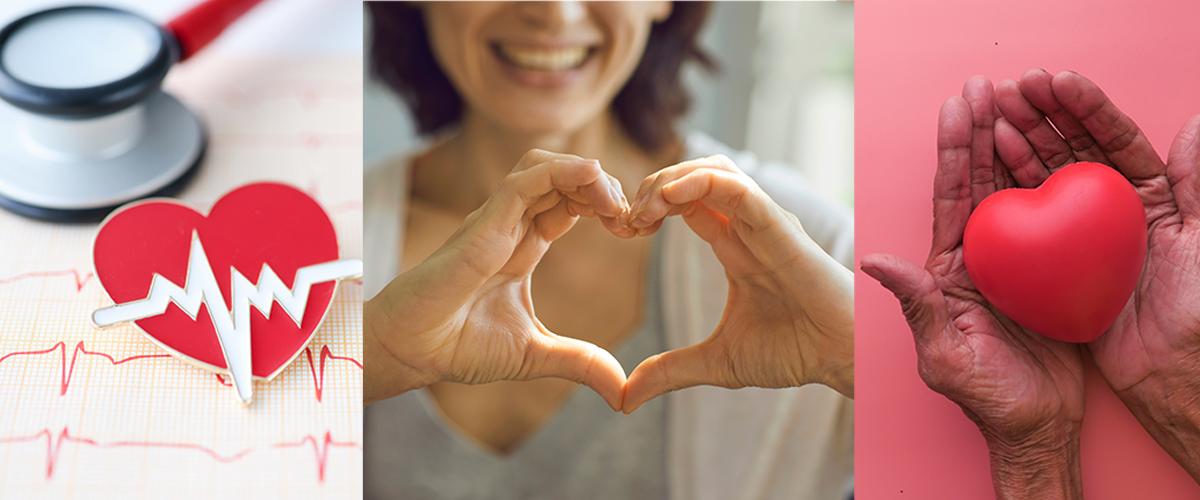- May 5, 2025
- Deeya Karkera; PharmD Candidate, Class of 2025

When we hear about heart disease, it’s easy to think, “That won’t happen to me.” Or maybe we picture it happening only to older men. But here’s the truth: heart disease is the number one killer of women — and it often doesn’t look or feel the way we expect.
Let’s talk about what makes women’s heart health unique — and how you can stay strong for yourself and the people you love.
Heart Problems Don’t Always Feel Like Chest Pain
You’ve probably seen it in movies — a man clutching his chest, gasping for air. But in women, heart disease often shows up differently — and sometimes quietly.
You might feel:
- Suddenly exhausted for no clear reason
- Short of breath, even when you’re not moving much
- A little sick to your stomach
- Achy in your jaw, back, neck, or upper stomach
- Dizzy or lightheaded
Sometimes, these signs are brushed off as stress, anxiety, or "just getting older." But they can be serious — and they deserve attention.
What Makes Women’s Hearts More Vulnerable?
Of course, things like high blood pressure, high cholesterol, and smoking raise everyone’s risk.
But for women, there are some extra layers:
- Pregnancy complications (like preeclampsia or gestational diabetes) can leave a lasting mark on your heart.
- Autoimmune diseases (like lupus) create hidden inflammation that affects your blood vessels.
- Menopause brings hormonal changes that can weaken heart protection.
- Chronic stress and depression weigh heavily on heart health too — in ways we’re only starting to fully understand.
The truth is, a lot of women walk around carrying silent risks they don’t even know about.
Taking Care of Your Heart Doesn’t Have to Be Overwhelming
You don’t need to change everything overnight. Start small. Every choice you make adds up to a stronger heart.
- Eat colorful foods — fruits, veggies, and whole grains give your heart the fuel it loves.
- Move your body — even a daily walk can make a real difference.
- Get your blood pressure and cholesterol checked — knowing your numbers = knowing your story.
- Manage your stress — deep breaths, good sleep, time with people who lift you up.
- Quit smoking — it’s never too late to quit and heal.
When Medicine Can Help
Sometimes lifestyle changes aren’t enough on their own. And that’s okay. There are tools that can help you stay on track.
Over-the-Counter (OTC) Options:
- Low-dose aspirin (81 mg): Some women take it to help prevent heart attacks — but it’s not for everyone. Always ask your doctor first.
- Omega-3 supplements: These healthy fats might help lower certain blood fats. But again — talk to your provider before adding them.
Prescription Options:
- Statins (like atorvastatin): Lower cholesterol and protect your arteries.
- Blood pressure medications (like lisinopril): Keep your heart from working too hard.
- Beta-blockers (like metoprolol): Help your heart beat more gently, especially after heart events.
- Blood thinners (like clopidogrel): Help prevent dangerous blood clots.
Important: Always talk with your healthcare provider before starting any new medicine, even over-the-counter ones.
Conclusion: Listen to Your Heart — Literally
Your heart works so hard for you — beating more than 100,000 times a day. If something feels wrong, speak up and keep asking questions until you get the care you deserve. You only get one heart. Take care of it like it takes care of you.






